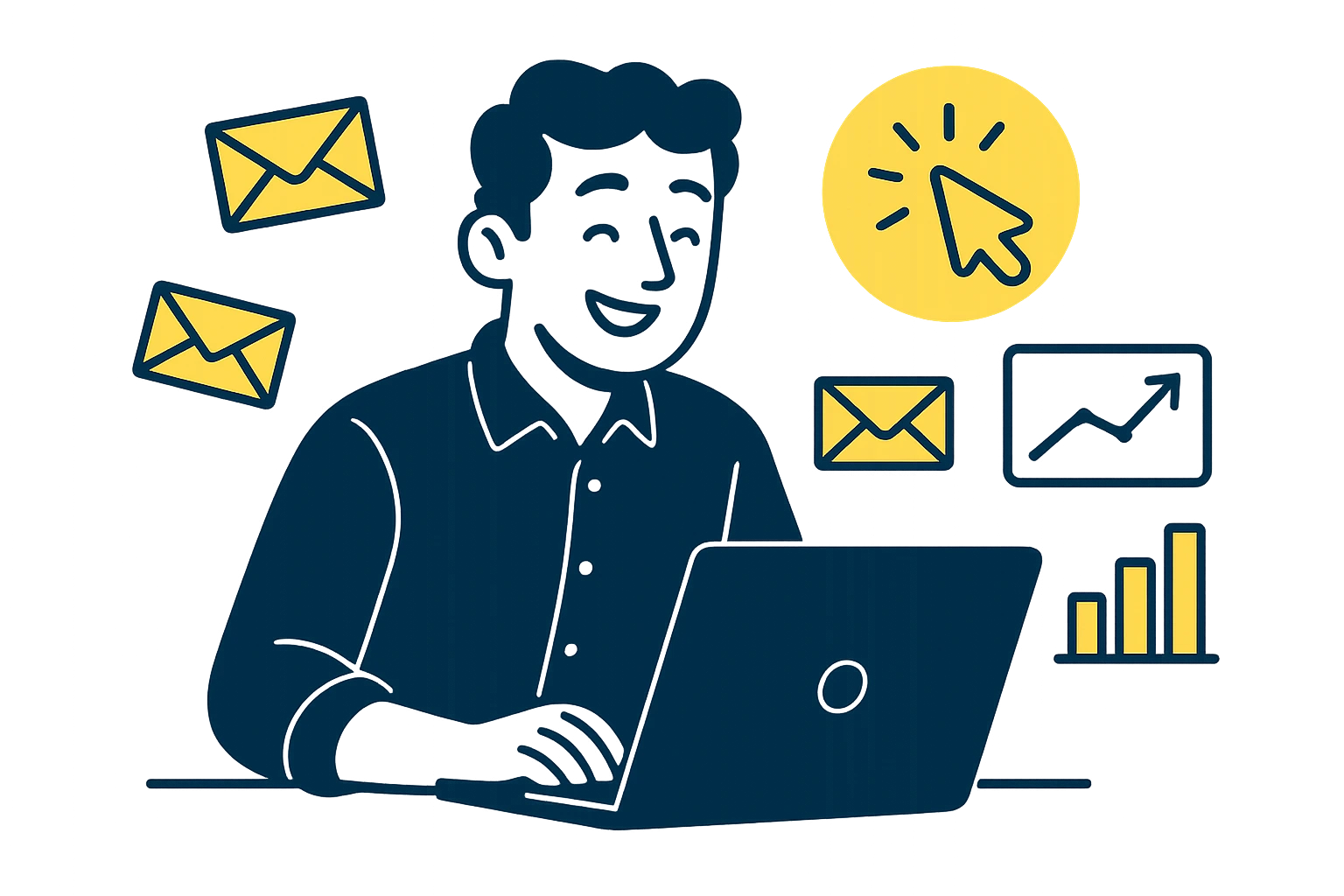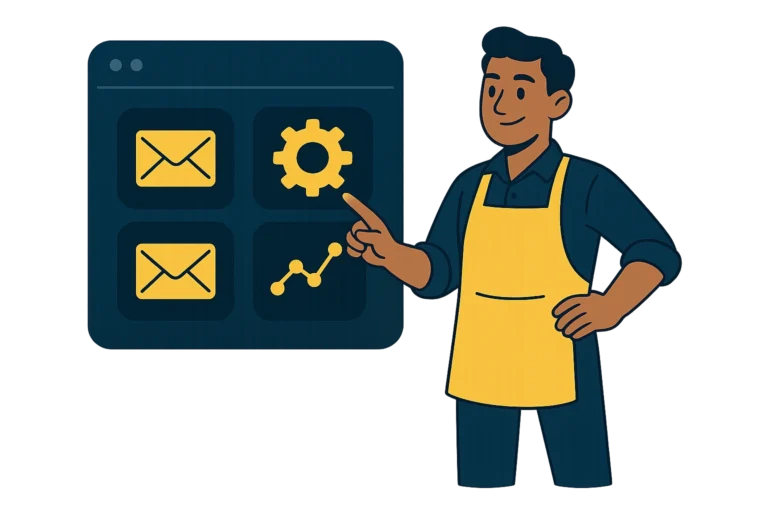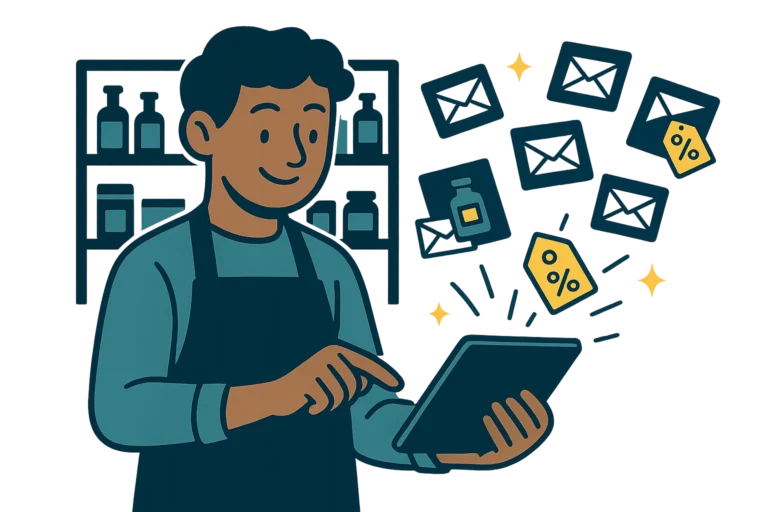Let’s be real — sending emails is easy. But sending emails that actually convert into sales, bookings, or responses? That’s where most small businesses struggle. If your open rates are low or people click but don’t act, it’s not your audience — it’s your campaign.
At EmailMarketingBooster.com, we specialize in building conversion-focused email campaigns for small and local businesses. In this guide, we’ll walk you through the key steps to turn your email list into a revenue engine.
1. Start with a Clear Goal
Every campaign should have one specific goal — not three, not five. Do you want more bookings? Product sales? Newsletter signups? Know this before you type a single word.
🎯 Example goals:
- Get 10 bookings this week
- Sell out your new product
- Drive traffic to a landing page
A focused goal makes the rest of your campaign strategy much easier to build.
2. Write a Subject Line That Gets Clicked
Your subject line is your first (and sometimes only) chance to make a connection. A great subject line should be:
- Clear
- Benefit-focused
- Personal (if possible)
- Free of spammy words like “Buy now!!!”
💡 Pro Tip: Use preview text to support the subject. It appears right next to it in most inboxes.
3. Craft Value-Driven, Conversational Copy
People don’t want to be sold to — they want solutions. Use your email body to show what’s in it for them, not just what you’re offering.
Use:
- Short paragraphs
- Bullet points
- Clear call-to-action (CTA) buttons
Write like you’re having a 1-on-1 conversation, not broadcasting a corporate memo.
4. Use One Clear Call-to-Action (CTA)
Multiple CTAs confuse the reader. Whether it’s “Shop Now,” “Book Your Call,” or “Claim Your Offer,” your email should push one clear action. Make it stand out visually and repeat it once near the bottom.
5. Design for Scanners (Not Readers)
Most people don’t read every word — they scan. Your email layout should include:
- Bold headers
- Visual hierarchy
- Mobile-responsive formatting
- Plenty of white space
Your CTA button should be visible without scrolling and easy to tap on mobile.
6. Personalize Wherever Possible
Personalized emails perform better. Use:
- First names
- Location-based offers
- Past purchase behavior
If you’re using advanced segmentation (like we offer in our Growth Plan), you can send different versions of the same email to different groups.
7. Time It Right
The best message at the wrong time = no results. Depending on your audience, try sending during:
- Early mornings (7–9 AM)
- Mid-week (Tuesday–Thursday)
- Post-lunch hours (1–3 PM)
Test and analyze what works best for your audience.
8. Always A/B Test Key Elements
Don’t assume — test! A/B testing allows you to send two versions of an email with one variable changed (subject line, CTA, or image). Over time, this data helps you improve your conversion rates consistently.
9. Optimize for Deliverability
Even the best email won’t convert if it lands in spam. Use tools to check your:
- Spam score
- Sender reputation
- Domain authentication (SPF, DKIM, DMARC)
Our Pro Plan includes deliverability audits to keep your emails landing in inboxes, not junk folders.
10. Review Performance & Refine
After sending, don’t just move on — dig into the data:
- Open Rate = Was the subject line effective?
- Click Rate = Was the CTA strong enough?
- Conversion Rate = Did people take the action?
Use these insights to refine your next campaign.
Bonus: Be Consistent, Not Constant
You don’t need to email every day. A well-planned campaign sent weekly or biweekly is more effective than a flood of random emails. Focus on consistency and delivering value.
Final Thoughts
Creating email campaigns that actually convert is part science, part art — and when done right, it can be your small business’s most profitable marketing channel.
If you’re ready to stop guessing and start growing, check out our pricing plans or get a custom quote tailored to your business. Have questions? Contact us here or chat live with our team!




